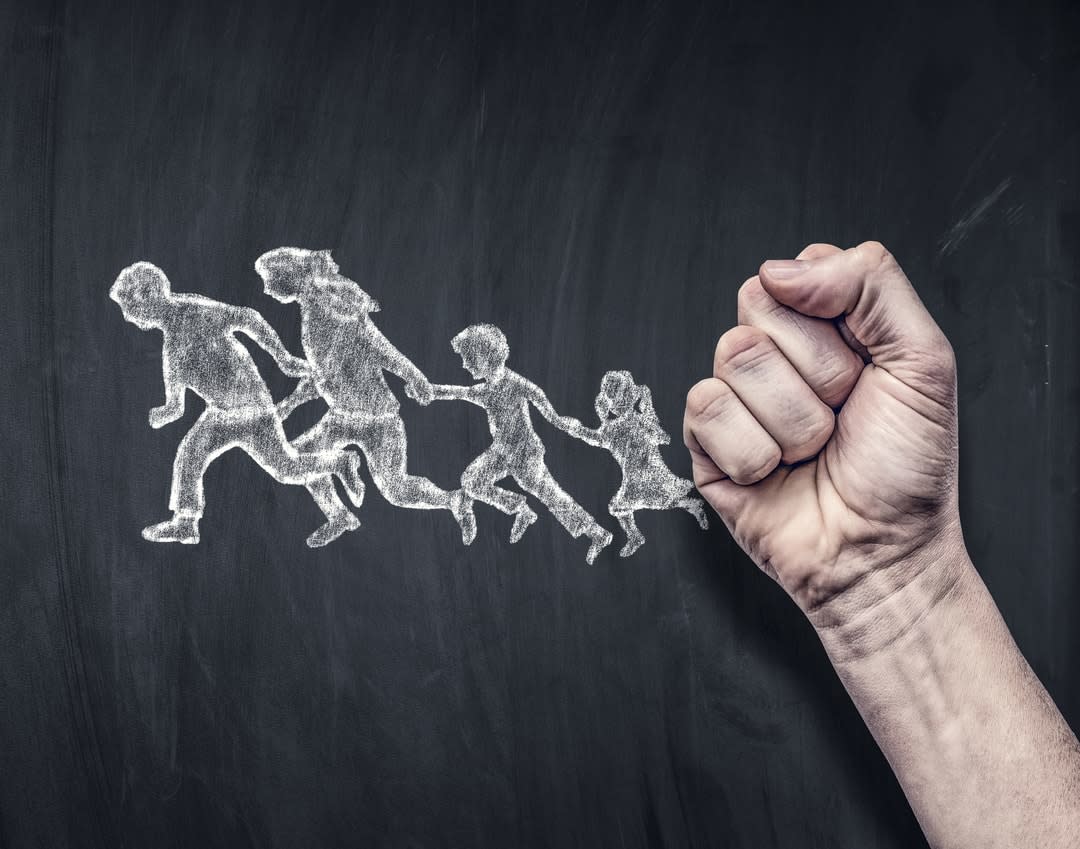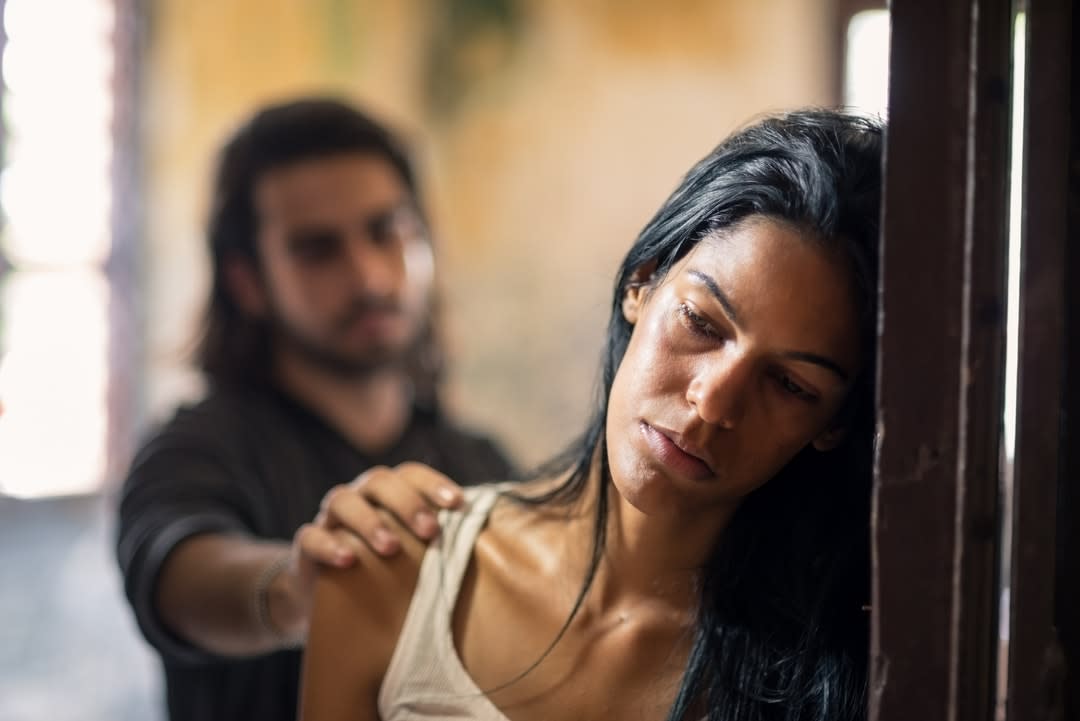
We know well that family violence is a national emergency and public health concern, one that is escalated in the context of self-isolation amid the response to the COVID-19 pandemic.
There are reports now flowing through to the media of concerning developments of the use of the pandemic to exert coercive control, and an increased demand in services in the midst of a crisis of shifting service responses as much as possible to comply with requirements of social distancing.
We also know that family violence manifests in specific ways and has different impacts on women from diverse backgrounds – there are specific concerns for women living with disability, as well as specific and known concerns for migrant and refugee women, particularly those holding temporary visas.
Building on past efforts
Experts and practitioners across Australia came together in 2019 to identify how family violence specifically impacts women who hold temporary visas, and their children.
We collectively prepared a Blueprint for Reform that highlighted specific concerns regarding the challenges women on temporary visa face in relation to accessing social security, legal, welfare and medical services, as well as a range of reform recommendations.

The urgency of these issues is only heightened in the context of a global pandemic.
We know that migrant and refugee women can be hard to reach for reasons that include language barriers, access to communication (including perpetrators controlling what they access), and social pressures within their community to remain silent. We also know that this group faces specific precarity: uncertainty regarding their visa status, uncertainty regarding their rights in relation to children who are Australian citizens, and the limitations on welfare, accommodation, medical and legal support services.
Read more: How Australia's migration system is failing victims of gendered violence
So what is the impact of COVID-19 and the national response to the pandemic for women on temporary visas experiencing family violence?
There are more than two million people on temporary visas in Australia, and they hold different visas with different requirements and eligibility for services. This includes student visa holders, working holiday visas, bridging visa, temporary partner visas, among others.
There are three key concerns relevant to women who are being asked, like everyone in the country, to self-isolate who are at the same time temporary visa holders, and who are experiencing family violence.
1. No financial support
Many women who are on temporary visas are in precarious, casual or contracted employment, and like many around the country, are losing, or have lost, their jobs as businesses close.
Many have children to support, rent to pay, and are facing the challenge of being excluded from the support provisions being put in place by the federal government.
We have seen some piecemeal recognition of temporary visa holders, and the need to respond to this group. For example, the 40 hours of paid work per fortnight limitation on international students was lifted for specific, essential services where students already hold employment (supermarkets and aged care) but requires permission from the Department of Home Affairs.
It was also announced that the new payment to keep people in employment via a wage subsidy would extend to New Zealanders holding 444 visas.
But it's known and recognised that temporary visa holders more broadly have no guarantee of financial support during this time of significant uncertainty and limited employment opportunities.
This includes those who hold temporary skilled visas (482) who currently still have the requirement of finding another sponsor within 60 days if their employment contract ends, and no access to welfare support during this time.
But this isn't just about women losing their jobs and income – for women who are dependent financially on partners who have lost their jobs, there's a clear concern regarding the rising levels of abuse because of financial stress and uncertainty.
It also means that women who may have sought to leave a perpetrator and to be financially independent have lost this lifeline to sustain their financial security. The emergency relief packages must be inclusive at this time for these and other critical situations that are unfolding behind closed doors across the country.
2. Medicare support
A related and significant concern is that temporary visa holders don't have access to Medicare.
Women on temporary visas experiencing violence aren't eligible for all health services, access to contraception and abortion.
This is a matter of urgency across the sector, and equality of support should be the foundation. Access to testing, certainty regarding health provision and services is essential. We know also that medical service provision is one opportunity for women to seek support in the context of family violence, because service providers can request to see patients on their own, so that partners who insist on attending appointments step outside of a consultation. This opportunity is reduced amid the need to transform medical services to be teleconference-capable, so we must ensure that there are innovative ways to continue to enable women to share safety and security concerns, and to have ongoing access to medical support.
The means that the emergency relief must extend to medical care and be inclusive of everyone in Australia at this time. It is also essential that we include a significant investment in making interpreters available to support service provision.
3. Isolation and control at a time of self-isolation
When planning a response, we need to ensure that family violence specialist services, which extends to men’s services as well as community legal services, have the support they need. This includes certainty and clarity regarding the situation for women who are temporary visa holders.

We can work fast to disrupt the misinformation we know perpetrators often perpetuate regarding visas (for example, that they can have women deported, that they can withdraw sponsorship and leave women destitute, and refuse to support them).
Perpetrators have long used isolation and control to silence women. We need to use every means possible to communicate to women in many languages, and via every platform available, that there's support available amid self-isolation, and that their security is the foremost concern.
Underpinning these concerns and issues is uncertainty. We can overcome uncertainty via federal leadership that recognises that a public health response requires everyone to have access to what they need to maintain self-isolation and to be safe.
A consistent message we've had in relation to temporary migration and family violence is that our response as a nation to family violence must not be limited by someone’s visa.
Responding to violence and securing women’s safety must always be the primary focus and drive, if we're to make significant inroads into disrupting and ending family violence.
Amid the COVID-19 pandemic this remains critical, and is further compounded by the broader public health crisis.
The Keeping Women Safe in their Home program is a step towards this, but is widely recognised in the sector as the beginning, not the sum, of what is needed.
We cannot lose sight of the need to protect everyone’s security and safety, regardless of the visa they hold.
To prioritise public health, we must ensure that everyone in the country, regardless of the visa they hold, has the certainty of housing, money, medical support and safety. This is our best way to ensure a consistent, concerted community effort to achieve the public health goal we're seeking as a nation – the flattening and decline of the curve. It will also make significant inroads into another major public health concern – the reduction in family violence.
SUPPORT
If you or anyone you know needs assistance, you can visit Monash University's Gender and Family Violence support centre.
There's also a detailed list of resources being updated via AWAVA for migrant and refugee communities. They're listed below, but follow the link for up-to-date information.
- Ethnolink Language Services has translated COVID-19 (coronavirus) resources into 50 languages.
- SBS has launched a Multicultural Coronavirus Portal where communities can access the latest news about the pandemic across 63 languages.
- The Australian Government Department of Health has released translated coronavirus (COVID-19) resources.
- The Victorian government has created coronavirus disease (COVID-19) factsheets available in 48 languages.
- The NSW government has created translated factsheets on slowing the spread of COVID-19 and social distancing.
- The WA government has created COVID-19 translated resources and campaign materials.
- The Queensland government has created translated Queensland Health resources.





